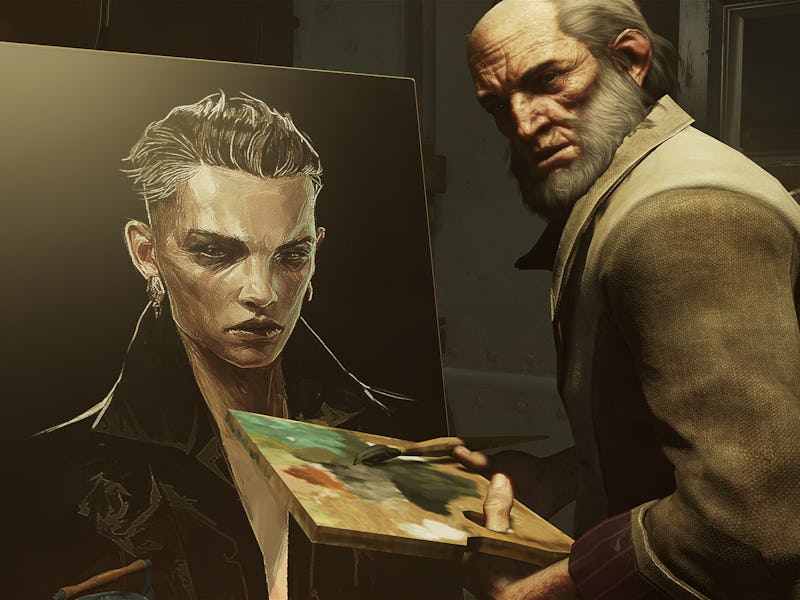'Dishonored 2' Is a Beautiful Toy
Something lifeless you can play with over and over again.

Dishonored 2 is an impressive feat in many ways. Karnaca, the game’s new locale, is a gorgeous Spanish-inspired spiderweb of buildings, people, and deadly machinations. The supernatural abilities granted from the Outsider are something else, and they’re genuinely a joy to play with. But the characters, the setting, the overarching narrative? They left me as cold as one of the Crown Killer’s victims. For me, Dishonored 2 is simply a beautiful toy.
And that’s not to say I don’t have fun playing as Emily, turning into shadows and slinking about to eliminate my enemies. Far from it; sneaking about is especially satisfying when you can choke out guards without others noticing. But for all the game’s attempts at drawing me in with the kidnapping of half its protagonists, the sea captain with wounds that leave constant questions on my mind, and hidden notes, books, and audio, I just haven’t found it in myself to care.
Admittedly, I’ve not played the first game. I’m also only 12 hours in, which is a stupid amount of time to anyone unfamiliar with games but may come across as not enough to those that are. And I have a five-month-old baby that’s getting his first two teeth. None of that disqualifies me from having an opinion, but my circumstances are unusual, though not unique, I’m sure. The game makes a number of assumptions of its incoming players, and in that way it’s unwelcoming.
Instead, for me, Dishonored 2’s become a giant murder simulator. Or, perhaps more accurately, an “unconscious bodies” simulator. How do I sneak through this building without alerting the various guards and sundry? Where do I leave bodies? How do I draw this one guard into a position where I can knock him out without the others seeing? Every level, a simulator with obvious tells, possible manipulations, and ramifications. When I inevitably die in the course of duty, it all resets, and I go again. But this time I throw that grenade sooner, or I jump through that window first.
Everything else is just set dressing that serves seemingly little purpose beyond giving me a reason to beat these people up and use sweet magic. What’s most interesting perhaps is that literally all of this is totally forgivable because of how extremely captivating the giant murder simulator can be. Leaping about, finding new rooms left unexplored in previous attempts, and the neverending adrenaline associated with carefully laid plans suddenly bursting wide open have nothing to do with who or what the Outsider is, whether Emily Kaldwin should be on the throne, or rescuing Sokolov, an inventor from the past of the first game.
If the mechanics of all that weren’t as enthralling, it’d be more unforgivable that the voice acting so often falls flat when trying to emote or convey important information. It’d be more frustrating that nearly all of the explanation and exposition were handled in brief interludes between scenes or through direct info dumps from NPCs. What is seemingly the game’s greatest driving force — Delilah and her coup — is so quickly covered and then shelved for a variety of fetch quests that I was left with whiplash.
But I did supernaturally connect those three dudes before putting them all to sleep with a sleep dart that one time. Then I slid across the floor and knocked another unconscious without his friend seeing before turning into shadows and disappearing through a grate as a rat. Just don’t ask me to tell you what I was supposed to be doing instead or where I was going or why.